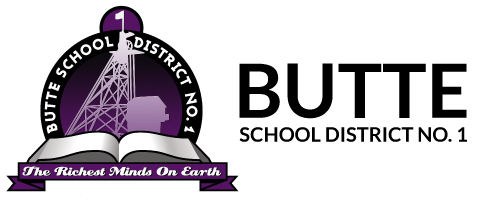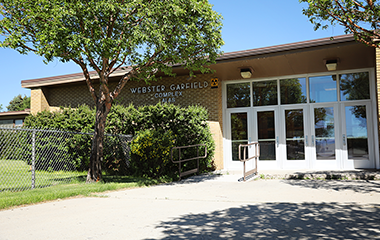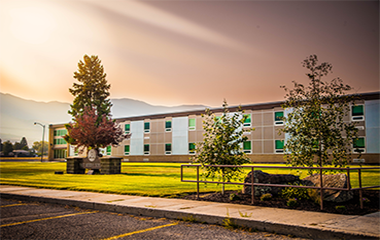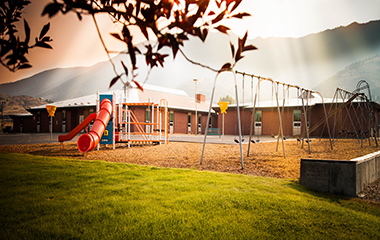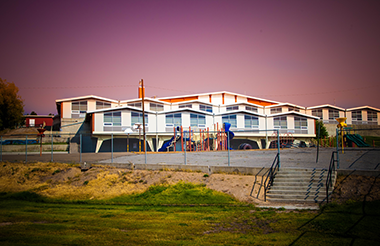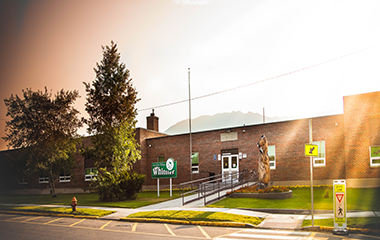Butte School District
THE BOARD OF TRUSTEES
3231
Searches and Seizure
The goal of search and seizure with respect to students is meeting the educational needs of children and ensuring their security. The objective of any search and/or seizure is not the eradication of crime in the community. Searches may be carried out to recover stolen property, to detect illegal substances or weapons, or to uncover any matter reasonably believed to be a threat to the maintenance of an orderly educational environment. The board authorizes school authorities to conduct reasonable searches of school property and equipment, as well as of students and their personal effects, to maintain order and security in the schools.
The search of a student, by authorized school authorities, is reasonable if it is both: (1) justified at its inception, and (2) reasonably related in scope to the circumstances which justified the interference in the first place. The search itself must be conducted in a manner which is reasonably related to its objectives and not excessively intrusive in light of the age and sex of the student and the nature of the infraction.
School authorities are authorized to utilize any reasonable means of conducting searches, including but not limited to the following:
- A “pat down” of the exterior of the student’s clothing;
- A search of the student’s clothing, including pockets;
- A search of any container or object used by, belonging to, or otherwise in the possession or control of a student; and/or
- Devices or tools identified in school district policy or the student handbook or deemed necessary by the Superintendent or designee.
School Property and Equipment and Personal Effects of Students
School authorities may inspect and search school property and equipment owned or controlled by the District (such as lockers, desks, and parking lots).
The Superintendent may request the assistance of law enforcement officials, including their use of specially trained dogs, to conduct inspections and searches of lockers, desks, parking lots, and other school property and equipment for illegal drugs, weapons, or other illegal or dangerous substances or material.
Students
School officials may search any individual student, his/her property, or District property under his/her control, when there is a reasonable suspicion that the search will uncover evidence that he/she is violating the law, Board policy, administrative regulation, or other rules of the District or the school. Reasonable suspicion shall be based on specific and objective facts that the search will produce evidence related to the alleged violation. The types of student property that may be searched by school officials include but are not limited to lockers, desks, purses, backpacks, student vehicles parked on District property, cellular phones, or other electronic communication devices.
Students may not use, transport, carry, or possess illegal drugs or any weapons in their vehicles on school property. While on school property, vehicles may be inspected an any time by staff, or by contractors employed by the District utilizing trained dogs, for the presence of illegal drugs, drug paraphernalia, or weapons. In the event the school has reason to believe that drugs, drug paraphernalia, or weapons are present, including by alert-trained dogs, the student’s vehicle will be searched, and the student expressly consents to such a search.
Also, by parking in the school parking lots, the student consents to having his/her vehicle searched if the school authorities have any other reasonable suspicion to believe that a violation of school rules or policy has occurred.
Seizure of Property
When a search produces evidence that the student has violated or is violating either the law or the District’s policies or rules, such evidence may be seized and impounded by school authorities, and disciplinary action may be taken. As appropriate, such evidence may be transferred to law enforcement authorities.
Legal Reference:
Redding v. Safford Unified School District, 504 F.3d 828,2007WL 2743594 (C.A.9 (Ariz.))
Terry v. Ohio, 392 U.S. 1, 20 (1968)
B.C. v. Plumas, (9th Cir. 1999) 192 F.3d 1260
Policy History:
Adopted on: 10/18/04
Revised on: 03/16/09, 5/15/23
- 3102 - Attendance Area Policy
- 3102P - Attendance Area Policy Continued
- 3102F-1 - Request for Student Boundary Waiver (opens in new window)
- 3102F-2 - Request for Student Records (opens in new window)
- 3102 F-3 Special Power of Attorney for temporary custody assignment
- 3102F-4 - Student Transfer Form (opens in new window)
- 3110 - Entrance, Placement & Transfer
- 3120 - Compulsory Attendance
- 3121 - Enrollment & Attendance Records
- 3121F - Education Authorization Affidavit (opens in new window)
- 3121P - Enrollment & Attendance Records Continued
- 3122 - Attendance Policy
- 3122P - Attendance Policy Continued
- 3125 - Education of Homeless Children
- 3125F - McKinney-Vento Homeless Education Assistance Dispute Resolution Form (opens in new window)
- 3130 - Students of Legal Age
- FP-14.1 Out of District Attendance Agreement (opens in new window)
- 3141 - Discretionary Nonresident Student Attendance Policy
- 3141 F-1 Application for Out of District Attendance (opens in new window)
- 3141 F-2 FP-14.1 Parent or District Student Attendance Agreement FY2026 (opens in new window)
- 3141 F-3 - FP-14.2 Foster and Group Home Student Attendance Agreement FY2026 (opens in new window)
- 3141P - Nonresident Student Enrollment
- 3145 - Foreign Exchange Students
- 3150 - Part-Time Attendance
- 3200 - Student Rights & Responsibilities
- 3210 - Equal Education, Nondiscrimination & Sex Equity
- 3215 - Uniform Grievance Procedure
- 3221 - Student Publications
- 3222- Distribution & Posting of Materials
- 3224 - Student Dress
- 3225 - Sexual Harassment/Intimidation of Students
- 3225F - Harassment Reporting Form for Students
- 3225P Procedure Sexual Harassment of Students
- 3226 - Hazing...
- 3231 - Searches & Seizures
- 3231P - Searches & Seizure Continued
- 3233 - Student Use of Buildings; Equal Access
- 3235 - Video Surveillance
- 3300 - Corrective Actions & Punishments
- 3300F - Notice of Hearing (opens in new window)
- 3300P - Corrective Actions & Punishments Continued
- 3310 - Student Discipline
- 3310P - Discipline of Students with Disabilities (opens in new window)
- 3330 - Use of Alcohol-Sensor Device
- 3403F - Student Participation Form
- 3403 - Extracurricular Participation
- 3405 - Missing School Children
- 3405P - Missing School Children Continued
- 3410 - Student Health/Physical Screenings/Examinations
- 3410FMedical Examination Notice Permission
- 3413 - Student Immunization
- 3413-F2 Religious Exemption
- 3415 - Management of Sports-Related Concussions
- 3416 - Administering Medicines to Students
- 3415P - Management of Sports-Related Concussions
- 3416F - Designation and Acceptance to Administer Glucagon
- 3416F-1 Standing Order-Administering Medicines to Students
- 3416F-2 Standing Order Log Sheet
- 3416F-A - Medication Administration Training Within the School
- 3416F-B - Administration of Liability Release & Medication Order
- 3416F-C - Daily Medication Log
- 3416F-D - Student Log for PRN - "As Needed" Medication Administration
- 3416F-E - Student Log for Emergency Medication Administration
- 3416F-G - Protocol for Emergency Use of Epinephrine for Anaphylaxis
- 3416F-H - Log for Administration of Stock Supply
- Addendum 3416F-I Stock Supply Naloxone
- 3417 - Communicable Diseases
- 3431 - Emergency Treatment
- 3440 - Removal of Student During School Day
- 3440P - Removal of Student During School Day Continued
- 3510 - School-Sponsored Student Activities
- 3510P - Requesting, Approving & Scheduling of Field Trips
- 3510F-1 - Application for Field Trip
- 3510F-2 - Parent Consent (opens in new window)
- 3510F-3 - Insurance
- 3520 - Student Fees, Fines & Charges
- 3520P - School Nutrition Services Procedures & Rules
- 3520F-1 School Nutrition Meal Agreement
- 3535 - Distribution of Fund Drive Literature Through Students
- 3530 - Student Fund-Raising Activities
- 3600 - Student Records
- 3600P - Student Records Continued
- 3600F-1 - Student Records Continued (opens in new window)
- 3600F-2 - Student Records Continued
- 3606 - Transfer of Student Records
- 3606F - Transfer of Student Records Continued
- 3608 - Receipt of Confidential Records
- 3610 - Programs for At Risk/Disadvantaged Students
- 3611 - Gangs & Gang Activity
- 3612 - District-Provided Access to Electronic Information, Services & Networks
- 3612F - Internet Access Conduct Agreement (opens in new window)
- 3612P - Acceptable Use of Electronic Networks
- 3630 - Cell Phones & Other Electronic Equipment
- 3615 - Crisis Intervention/Management
- 3650 - Pupil Online Personal Information Protection
- 3655 - Student Safety
This site provides information using PDF, visit this link to download the Adobe Acrobat Reader DC software.
